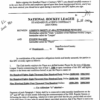Ben Askren, a name synonymous with relentless wrestling and an unfiltered persona, recently opened a chapter of his life that dwarfs any professional encounter: a harrowing battle for survival culminating in a double lung transplant. His candid public statements offer not merely a medical update, but a gripping narrative of human resilience and an astonishing journey back from the very precipice of mortality.
The Ordeal: A Void in Memory
The gravity of Askren`s situation commenced with a severe bout of pneumonia, a condition that rapidly escalated, leading to his urgent hospitalization. For weeks, the former Bellator and UFC champion found himself in a medically induced haze, largely unconscious, as a dedicated team of medical professionals fought tirelessly to preserve his life. His wife, Amy Askren, meticulously documented these fraught days in a journal, a poignant record that now serves as a chilling testament to the severity of his condition.
“I don`t remember anything from May 28 to July 2. No recollection. No idea. No idea what happened.”
This profound void in memory underscores the sheer intensity of the struggle his body endured, a period where his very existence hung in the balance.
Brushing with the Beyond: Four Times the Heart Stopped
Perhaps the most startling revelation from Askren was the incredibly blunt admission of how close he came to succumbing. “I only died four times where the ticker stopped for about 20 seconds,” he recounted with a characteristic blend of stoicism and understated gravity. This isn`t hyperbole; it refers to discrete instances of cardiac arrest, moments where his heart ceased to beat, necessitating immediate and critical intervention. It serves as a stark, sobering reminder that even a world-class athlete, known for peak physical conditioning and an iron will, is not immune to the inherent fragility of human existence when confronted by such a formidable medical adversary.
The Physical Toll and a New Beginning
The battle for life left indelible marks. Beyond the internal struggle, Askren experienced a dramatic physical transformation. His weight plummeted by an astonishing 50 pounds in just 45 days, dropping him to a lean 147 pounds—a figure he hadn`t seen since his early teenage years. This rapid depletion speaks volumes about the immense metabolic strain and the sheer energy expended by his body in fighting off the infection.
The double lung transplant ultimately became his lifeline, a complex, life-saving surgical procedure that offered a renewed chance at vitality. It was a critical turning point, a medical marvel offering a path forward where none seemed apparent just weeks prior.
A Unique Perspective on Grief and Gratitude
As Askren slowly reacquaints himself with his new reality, reading his wife`s journal has been a surreal experience, an unfolding drama “like a movie.” Yet, amidst the medical intricacies and personal struggle, a deeper sense of appreciation has emerged. The overwhelming outpouring of support from the wrestling and MMA communities, from fans, peers, and even casual observers, left a profound impression.
He poignantly remarked on feeling as though he “got to have my own funeral.” This statement, while perhaps laced with a touch of dark, relatable humor, highlights a truly unique opportunity: to witness firsthand the depth of love and respect people held for him, an experience few ever get to appreciate. It`s a powerful testament to the enduring bonds forged through sport and the broader human connection that transcends professional rivalries.
The Road Ahead: A Marathon, Not a Sprint
While Askren has courageously cleared the immediate hurdles of a life-threatening illness and major surgery, his journey to full recovery remains an ongoing marathon. Lung transplant recipients face a rigorous rehabilitation period, with inherent risks of infection and organ rejection always present, particularly in the critical initial months. Yet, his voice, even in recovery, carries a note of steadfast determination, a quality intimately familiar to anyone who followed his storied competitive career. He continues to embody the very essence of a fighter, now battling for his health with the same tenacity once displayed in the cage.
Conclusion
Ben Askren`s story is far more than a routine medical report; it`s a powerful narrative of immense resilience, a testament to the extraordinary capabilities of modern medicine, and a profound reminder of the vital role community and compassion play in times of crisis. From facing death on multiple occasions to embarking on a new, challenging chapter of recovery, “Funky” Ben continues to defy expectations. His journey proves that some fights, even those waged against one`s own body, can ultimately be won with a combination of sheer courage, precision medical intervention, and an abundance of unwavering human spirit.










